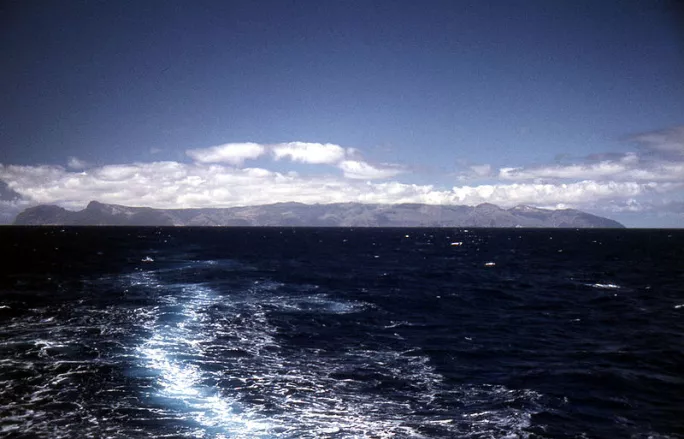The ‘autism lady’: Diary of an educational journey to St Helena (final chapter)
London headteacher Jude Ragan has spent 21 days working to assist autism teaching on the island of St Helena in the South Atlantic Ocean. She has been blogging about her experiences on the TES Professional blog. Here is her final diary about her experience.
All done, over in a flash. My three and a half weeks working on the tiny and remote island of St Helena have come to an end. But they will be the beginning, I hope, of a long association between Queensmill School in south-west London where I am headteacher and the schools here on the island, whose population contains the same proportion of children and young people with autism as anywhere else in the world.
What have I learned about autism? Primarily, that all good school staff want to learn as much as they can about autism so they can help autistic students - this remains the same in St. Helena as it does in London.
I have also had the importance of parents of children with autism being able to support each other re-iterated. On a small island like this with so few parents similarly affected, this must be harder to facilitate than in London where there are so many with similar life-experiences.
However, I see that here, where large extended families are only a hair-pin bend away, family members other than parents play a very important part in the support of a young person with autism. This is incredibly valuable and I reflect how seldom this is the case in London where families are spread so thin.
Another thing I have realised is that slower-moving, more rural communities can be on the whole more accepting of differences, less rushed, less outcome driven. SHAPE, a local cottage industry making desirable crafts to be sold to tourists by adults with a range of learning needs is possibly one of the happiest and self-confident places of its kind I have ever visited.
On a more personal note, I find that I can still sit on the floor, make connections with and have fun with children and young people severely affected by autism, which is something of a comfort to me as I have been at the more strategic end of the business for so long now.
What have I learned about St. Helena? It is extraordinarily beautiful, varied and interesting. Crashing waves on dark-rocked coves, hills steeper than the last at every turn, vertiginous roads safely navigated by unhurried and polite drivers, terrain ranging from barren to so lush that the greenery looks too good to be true.
Napoleon’s tomb is dignified and in the most wonderfully planted valley of his own choosing, his body now being in Paris making no difference to the reverence of the site itself.
The community is close-knit and friendly. It is hard even after a very short visit to go into a shop or restaurant without meeting someone previously met and having a chat with them. I was also privileged to be invited to Plantation House, the historic home of every Governor of the island, and to meet the charming present Governor and his wife, and mingle with their 200 guests celebrating the birthday of the Queen, while Jonathon, the 180 year old giant tortoise, ambled on their lawns below.
On the ship again on the way back to South Africa, I meet the chief engineer of Basil Reid, the contractors who are building the new airport, runway and supporting road infrastructure on St Helena, a massive and no-doubt island-changing project that is estimated to be finished in 2016. I tell him about the new Queensmill School being built as we speak in London by our contractors Bouygues UK. Bouygues? He knows them well, he has done several large joint projects with them.
This world, with all of its connections, is getting smaller and smaller as London now approaches again.
You can find Jude’s other blogs from St Helena here
Keep reading for just £1 per month
You've reached your limit of free articles this month. Subscribe for £1 per month for three months and get:
- Unlimited access to all Tes magazine content
- Exclusive subscriber-only stories
- Award-winning email newsletters
